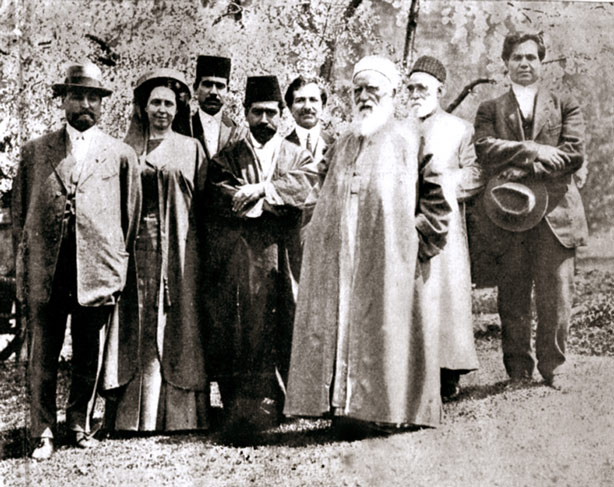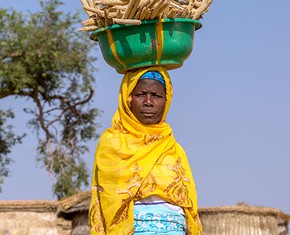The views expressed in our content reflect individual perspectives and do not represent the authoritative views of the Baha'i Faith.
May this American democracy be the first nation to establish the foundation of international agreement. May it be the first nation to proclaim the universality of mankind. May it be the first to upraise the standard of the Most Great Peace, and through this nation of democracy may these philanthropic intentions and institutions be spread… throughout the world. – Abdu’l-Baha, The Promulgation of Universal Peace, pp. 36-37.
Abdu’l-Baha came to America to challenge America to change.
In 1912, he spoke about five major issues that needed immediate and important attention from the entire nation: the equality of women and men; militarism and world peace; the unity of religion; materialism; and America’s severe problem with its deep and violent racial divide. In this essay, we’ll discuss the first four, and in the third installment, we’ll talk about the final and most challenging one.
On equality of women and men–very controversial then and now—Abdu’l-Baha spoke unequivocally. Perhaps the greatest thinker in America, Woodrow Wilson, had come out against women’s suffrage at that point, and most of America’s power structure opposed women working outside of the home. But Abdu’l-Baha talked about his own daughters, how they were educated, how they spoke several languages, how they were in charge of their own lives, how they were active in business. He described the Baha’i principle of the equality of the sexes. He challenged America to make women and men absolutely equal. Did America listen? Did America respond?

Abdu’l-Baha at the Lake Mohonk Peace Conference
Another major focus–world peace–drew Abdu’l-Baha’s constant attention. He focused on it relentlessly. He told the U.S. immigration authorities that the primary purpose of his trip involved serving as a main speaker at the 1912 Lake Mohonk Peace Conference. He came to America to warn us about war, that Europe had armed itself to the teeth, and that foreign intrigues were pushing for battle. He assured everyone that if the course did not change it would engender generations of wars in Europe. He called on the nations to demilitarize, to disarm, to sit down and reconcile their differences peacefully. He encouraged citizens to join forces and petition their governments to negotiate peace instead of fighting more wars. He talked about the unity of nations, the value of collective security. Did America listen? Did America respond?
He spoke constantly about the basic Baha’i principal of the unity of religion. He emphasized religion as the safeguard for mankind, and said that true religions should never conflict with one another. He talked about the common foundation of all religions, the importance of peace and harmony and dialogue between the followers of the many religions. This was very radical! He spoke from pulpits and altars of the most prominent Christian churches in the major cities of America. He spoke of Muhammad and Moses there. He addressed several Jewish congregations and gatherings in synagogues, and there he spoke of Jesus and Muhammad. He talked about the Creator as the Divine Educator, sending His Messengers with identical truths for all mankind: love God, love each other, serve humanity. Did America listen? Did America respond?
He warned us about materialism. Abdu’l-Baha spoke about America and its obsession with money, prestige, power, glitter—our growing material focus. He spoke with reporters about the New York City skyline, calling those buildings “The Minarets of Western World commerce and industry.” He called upon the rich to help the poor; he called upon all people to work hard and work in a spirit of service to humanity; he spoke of industrial justice and fairness and profit sharing and workers being loyal and steadfast. He wanted to re-orient us to look more toward the spiritual things of life. In his prayer for America Abdu’l-Baha asked us to choose a better focus:
O God! Let this American democracy become glorious in spiritual degrees even as it has aspired to material degrees . . . upraise the standard of the oneness of humanity… promulgate the Most Great Peace… – Baha’i Prayers, p. 24.
Did America listen? Did America respond?
















Comments
Sign in or create an account
Continue with Googleor